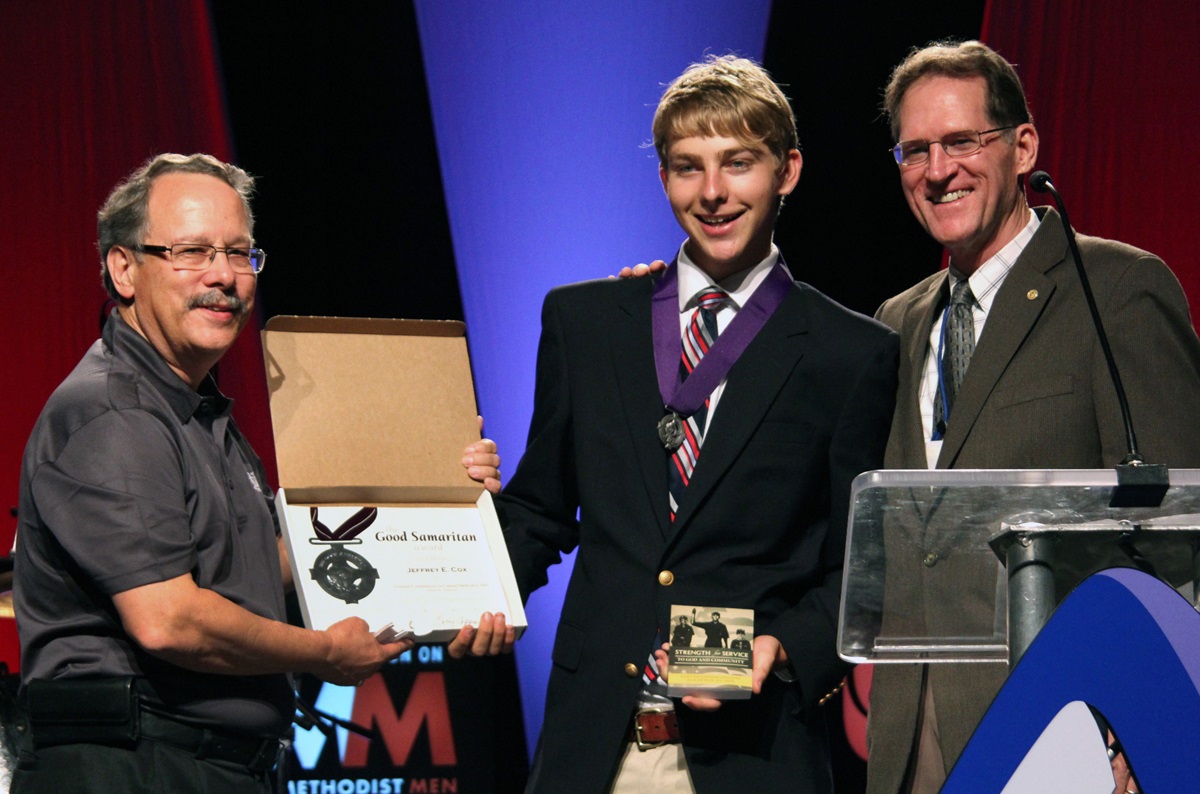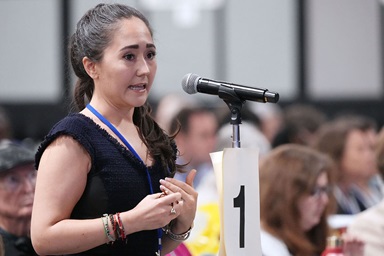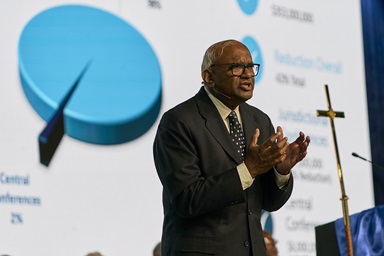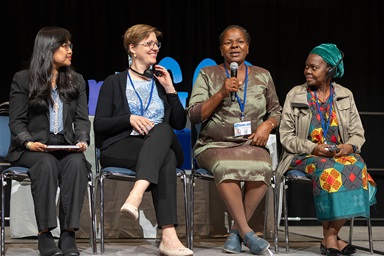Part of a series on how the church works
United Methodist Men’s top goal for 2016 was to help develop principled Christian leaders. Through a series of in-person and online events, the church’s men’s ministry agency helped to train almost 500 men’s ministry and scouting specialists, as well as enrolling more than 8,000 young people in religious classes.
In response to questions from United Methodist News Service, executive staff of the commission discussed the agency’s role and accomplishments in the past year.
What were the top three to five goals of your agency in 2016?
- Develop principled Christian leaders through United Methodist Men and youth-serving agencies.
- Provide resources that enable churches to increase members and reach young people.
- Support ministries with the poor.
- Encourage ministries that promote emotional and spiritual health.
- Fulfill Disciplinary responsibilities.
- Enable other ministries to men.
Were you able to fully or partly accomplish these goals? How was that done?
Goal 1
- We certified 39 men as men’s ministry specialists to help local churches expand their ministries to men.
- We trained 80 conference presidents and prayer advocates at a three-day session in Nashville, and we trained 24 Scout leaders at the Bechtel Summit Training Course.
- We provided face-to-face and electronic training for leaders of men’s ministry at the district and local levels.
Goal 2
- We certified 333 people to serve as scouting ministry specialists to help neighboring churches expand their ministries to youth.
- We worked with Programs of Religious Activities with Youth to enroll 8,474 young people in religious classes. Some 25 percent of the PRAY participants come from unchurched homes and their parents later join the church.
- We provided face-to-face and electronic training for scouting ministry at the district and local levels.
Goal 3
- We supported ministries with the poor by sponsoring gleaning efforts and potato drops coordinated by the Society of St. Andrew. The agency’s gifts to Meals for Millions provided 8.2 million servings of food.
- We worked with Stop Hunger Now to provide meal-packaging efforts across the nation, and individual units of United Methodist Men built handicap ramps and provided home repairs for community residents.
Goal 4
- Recognizing the importance of spiritual and emotional aspects play in the over-all health of individuals, we distributed 30,000 copies of “Strength for Service” books of daily devotions to first responders and members of the military (530,000 copies of the military book have been distributed since 2005).
- We supported the Upper Room Prayer Line with local church prayer advocates and training for conference prayer advocates enabling the ministry to respond to 265,000 prayer requests.
Goal 5
- We produced six e-letters that went to 1,500 men, and we distributed more than 10,000 copies of quarterly magazines to leaders of men’s organizations
- We introduced “The Class Meeting” and invited men to join small accountability groups through online meetings.
Goal 6
- We provided news and resources on the gcumm.org website and Facebook.
- We conducted 10 webinars and 250 small group e-meetings from the Nashville office.
What was your budget for 2016? How much of that budget was put toward each of these goals?
Our budget of $1.25 million was divided as follows: $277,936 went to Goal 1; $50,942 to Goal 2; $26,850 was spent on Goal 3; $29,218 for Goal 4; $640,472 was spent on achieving Goal 5 and $219,684 for Goal 6.
Please give a specific example of how one of your programs benefited a United Methodist, a church or a specific community.
Most of the small accountability groups are modeled after Wesley class meetings as described in “The Class Meeting: Reclaiming a Forgotten (and Essential) Small Group Experience” by Kevin Watson. Clergy and lay people report that these weekly meetings have supported them through life-changing disappointments, job and family issues, racist attacks and God sightings. Participants say, “I could not have done this … I would not have been able to handle this … I don’t know what I would have done … I would have not stayed on track …” without this group.
What particular challenges did the agency face in accomplishing these goals?
Apportionment funding continues to decrease while costs increase.
If the goals are ongoing, what do you plan to accomplish in 2017?
- Conduct a national gathering for United Methodist Men.
- Increase the number of men’s ministry specialists.
- Increase the number of scouting ministry specialists.
- Increase the number of Wesley Class meetings using available technology.
Like what you're reading? Support the ministry of UM News! Your support ensures the latest denominational news, dynamic stories and informative articles will continue to connect our global community. Make a tax-deductible donation at ResourceUMC.org/GiveUMCom.




